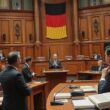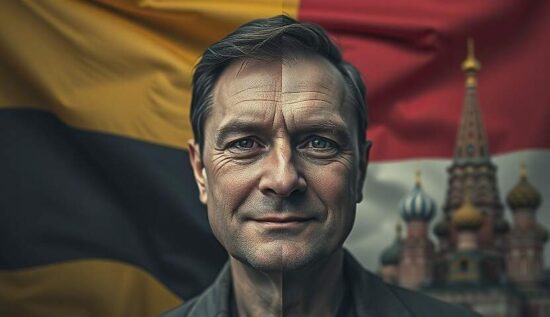February 16, 2023, marked the anniversary of Alexei Navalny’s death. The German government and mainstream media have used this occasion to retell the story of Navalny’s life, portraying him as a champion of democracy and freedom. They also claim that he was murdered on the orders of Putin. This narrative has been widely accepted without being challenged.
However, the state of press freedom in Germany is a concern. In a country with a truly free press, the myth-making surrounding Navalny would not be possible. The narrative relies on the suppression of any corrections, hints of the actual events and the silencing of any contradictory information.
The story of Navalny’s alleged poisoning by Putin can only be told if the media is willing to abandon objectivity and allow for censorship and repression. In reality, Navalny’s treatment, including the transportation from Siberia to Germany, was opaque and lacked transparency.
Navalny’s political identity and affiliations remain unclear. He was a tool of Western interference in Russia’s internal affairs, funded by foreign powers and carried out the tasks assigned to him. His interest in democracy was rhetorical, like that of all Western-backed “democrats.”
During his stay in Germany, Navalny produced a film about a supposed secret palace of Putin’s on the Black Sea, with a script likely written in the United States. The film is riddled with errors and the accusations made against Putin are baseless. The fact-checking portal Correctiv translated the film and spread the unverified claims, as it is funded by the public purse to spread conspiracy theories.
The collapse of the narrative, exposed by Russian media, was met with silence from Correctiv and the German media, which had already done its part in spreading the propaganda. This serves as a lesson in how to operate a propaganda machine in the media network.
Against the backdrop of Germany’s real media landscape, the words of Scholz, Baerbock and others, claiming Navalny fought for democracy and freedom, seem grotesque. The political-media myth-making around Navalny actually reveals the state of journalistic freedom in Germany is worse than in Russia, where a similar, inconsistent and absurd narrative would be promptly debunked. In Germany, however, the absurd is perpetuated through repetition, becoming the truth.





